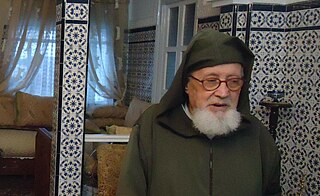 W
WAbu Uways Muhammad Abu Khubza al-Hassani was a Muslim Arab theologian, jurist, bibliographer and linguist from Morocco. His name has variantly been spelled "Bukhabza," "Boukhabza," Bu Khabza," and "Bu Khubza."
 W
WNicolás Antonio was a Spanish bibliographer born in Seville.
 W
WTheodore Deodatus Nathaniel Besterman was a psychical researcher, bibliographer, biographer, and translator. In 1945 he became the first editor of the Journal of Documentation. From the 1950s he devoted himself to studies of the works of Voltaire.
 W
WKâtip Çelebi, or Ḥājjī Khalīfa ; was the celebrated Ottoman-Turkish polymath and leading literary author of the 17th-century Ottoman Empire. He compiled a vast universal encyclopaedia, the famous Kaşf az-Zunūn, and wrote many treatises and essays. “A deliberate and impartial historian… of extensive learning”, Franz Babinger hailed him "the greatest encyclopaedist among the Ottomans."
 W
WIsak Gustaf Alfred Collijn was a Swedish bibliographer and publisher.
 W
WRichard Broke Freeman was a zoologist, historian of zoology, bibliographer of natural history and book collector. Known professionally as R. B. Freeman, he compiled comprehensive reference works on Charles Darwin and on P. H. Gosse. He was “a meticulous scholar” and a “brilliant bibliographer” who showed “a genuine modesty about his great erudition.” "It is darkly rumored among antiquarian booksellers that R. B. Freeman once missed a completely unrecorded and absurdly rare 1859 second issue of the first edition of The Origin of Species", a reviewer wrote in the Times Literary Supplement, "but this is also said to be the only mistake he has made during a lifetime of persistent scholarship and imaginative detective work in libraries, bookshops, sale-rooms, the attics of country houses and the trunks of the great-aunts of great men."
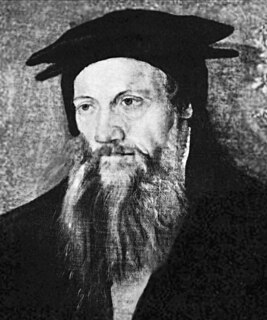 W
WConrad Gessner was a Swiss physician, naturalist, bibliographer, and philologist. Born into a poor family in Zürich, Switzerland, his father and teachers quickly realised his talents and supported him through university, where he studied classical languages, theology and medicine. He became Zürich's City Physician, but was able to spend much of his time on collecting, research and writing. Gessner compiled monumental works on bibliography and zoology and was working on a major botanical text at the time of his death from plague at the age of 49. He is regarded as the father of modern scientific bibliography, zoology and botany. He was frequently the first to describe a species of plant or animal in Europe, such as the tulip in 1559. A number of plants and animals have been named after him.
 W
WFelix de Latassa y Ortin was Aragonese bibliographer responsible for compiling a chronological index of Aragonese writers from the time of the birth of Christ up to his own time.
 W
WLuis Dionisio de Lezama Leguizamón y Sagarminaga (1865-1933) was a Spanish entrepreneur, vascologist and politician. As a businessman he kept developing the family-owned mining conglomerate, which controlled part or iron ore, carbon, fluorite, anhydrite and plaster exploitation in Vascongadas and Asturias. As a linguist he was a longtime executive of Sociedad de Estudios Vascos, owned one of the largest collections of Basque literature and contributed few scientific works himself. As a politician he supported the Traditionalist cause, first as a Carlist, in 1919-1931 as a breakaway Mellista, and then again as a Carlist; in the early 1930s he held the provincial party jefatura in Biscay.
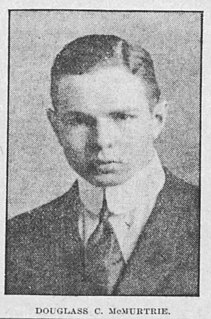 W
WDouglas Crawford McMurtrie was an American typeface designer, graphic designer, historian and bibliographer of printing.
 W
WAbū Zakariyyā Yaḥyā ibn Sharaf al-Nawawī, popularly known as al-Nawawī or Imam Nawawī, was a Sunni Shafi'ite jurist and hadith scholar. He authored numerous and lengthy works ranging from hadith, to theology, biography, and jurisprudence. Al-Nawawi never married.
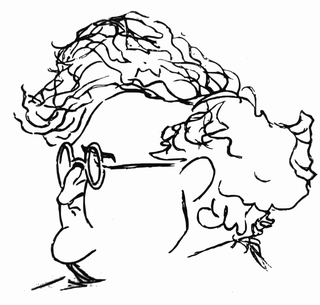 W
WPerpessicius was a Romanian literary historian and critic, poet, essayist and fiction writer. One of the prominent literary chroniclers of the Romanian interwar, he stood apart in his generation for having thrown his support behind the modernist and avant-garde currents of Romanian literature. As a theorist, Perpessicius merged the tenets of Symbolism with the pragmatic conservative principles of the 19th century Junimea society, but was much-criticized over perceptions that, in the name of aesthetic relativism, he tolerated literary failure. Also known as an anthologist, biographer, museologist, folklorist and book publisher, he was, together with George Călinescu, one of his generation's best-known researchers to have focused on the work of Junimist author and since-acknowledged national poet Mihai Eminescu. Much of Perpessicius' career was dedicated to collecting, structuring and interpreting Eminescu's texts, resulting in an authoritative edition of Eminescu's writings, the 17-volume Opere ("Works").
 W
WGraf Jurgis Konstantinas Broel Pliateris was a bibliographer and researcher of the Lithuanian language and literature. He was an activist of the early stages of the Lithuanian National Revival.
 W
WJoseph Sabin (1821-1881) was a Braunston, England-born bibliographer and bookseller in Oxford, Philadelphia, and New York City. He compiled the "stupendous" multivolume Dictionary of Books Relating to America, considered a "bibliophilic monument;" and published the American Bibliopolist, a trade magazine. His sons Robert T. Sabin and William W. Sabin also worked in the bookselling business.
 W
WCharles Davies Sherborn was an English bibliographer, paleontologist and geologist. His magnum opus was the compilation of the Index Animalium, an 11-volume, 9,000-page work that catalogued the 444,000 names of every living and extinct animal discovered between 1758 and 1850. This work is considered the bibliographic foundation for zoological nomenclature. In addition, Sherborn authored almost 200 books, papers, and catalogs on a wide variety topics in natural history. He made important contributions to the study of microfossils and was a founding member and first president of the Society for the Bibliography of Natural History. In recognition of his endeavours he was awarded an Honorary Doctorate from Oxford University.
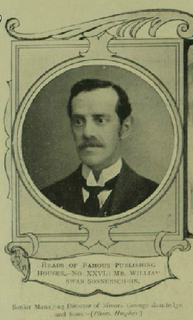 W
WWilliam Swan Sonnenschein, known from 1917 as William Swan Stallybrass, was a British publisher, editor and bibliographer. His publishing firm, Swan Sonnenschein, published scholarly works in the fields of philosophy and the social sciences. as well as general literature and periodicals. In 1902 he became the senior managing director of the British publishing firm George Routledge & Sons.
 W
WRaymond Toole Stott (1910–1982) was a bibliographer and historian of the circus and its allied arts. He wrote a definitive book on conjuring.
 W
WGrand Ayatollah Sheikh Mohammed Mohsen Razi popularly known as Agha (Aqa) Bozorg Tehrani, was born in Tehran. He was a Shia marja from Hawza Elmiye Najaf. He was the teacher of Grand Ayatollah Ali Hussaini Sistani, Grand Ayatollah Muhammad Hussain Najafi, and many others.
 W
WJulio de Urquijo e Ibarra, Count of Urquijo (1871-1950), in Basque self-styled as Julio Urkixokoa, was a Basque linguist, cultural activist, and a Spanish Carlist politician. As a Traditionalist deputy he twice served in the Cortes, during the terms of 1903-1905 and 1931-1933, though the climax of his political activity fell on the late Restoration period. As a scientist he was the moving spirit behind settting up numerous vascologist institutions, especially Revista Internacional de Estudios Vascos (1907) and Sociedad de Estudios Vascos (1918). Himself he specialized in Basque paremiology and bibliography. He opposed academy-driven unification of Basque dialects and preferred to wait until standard Basque emerges naturally.